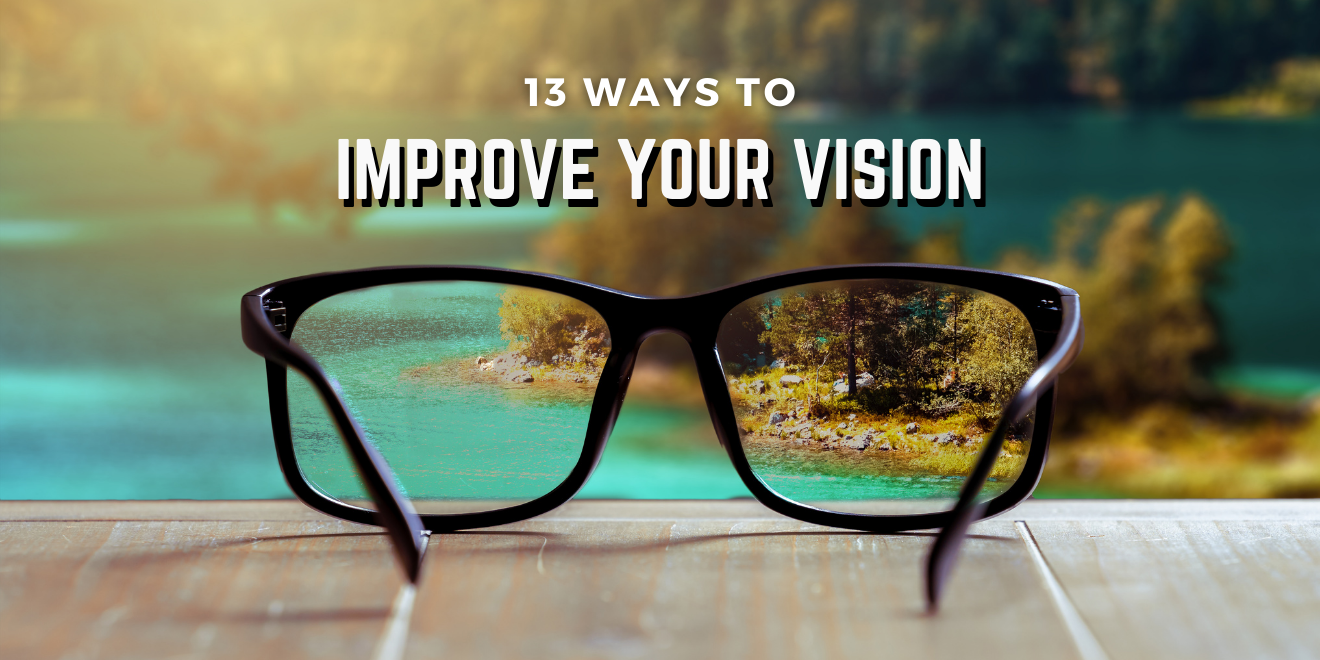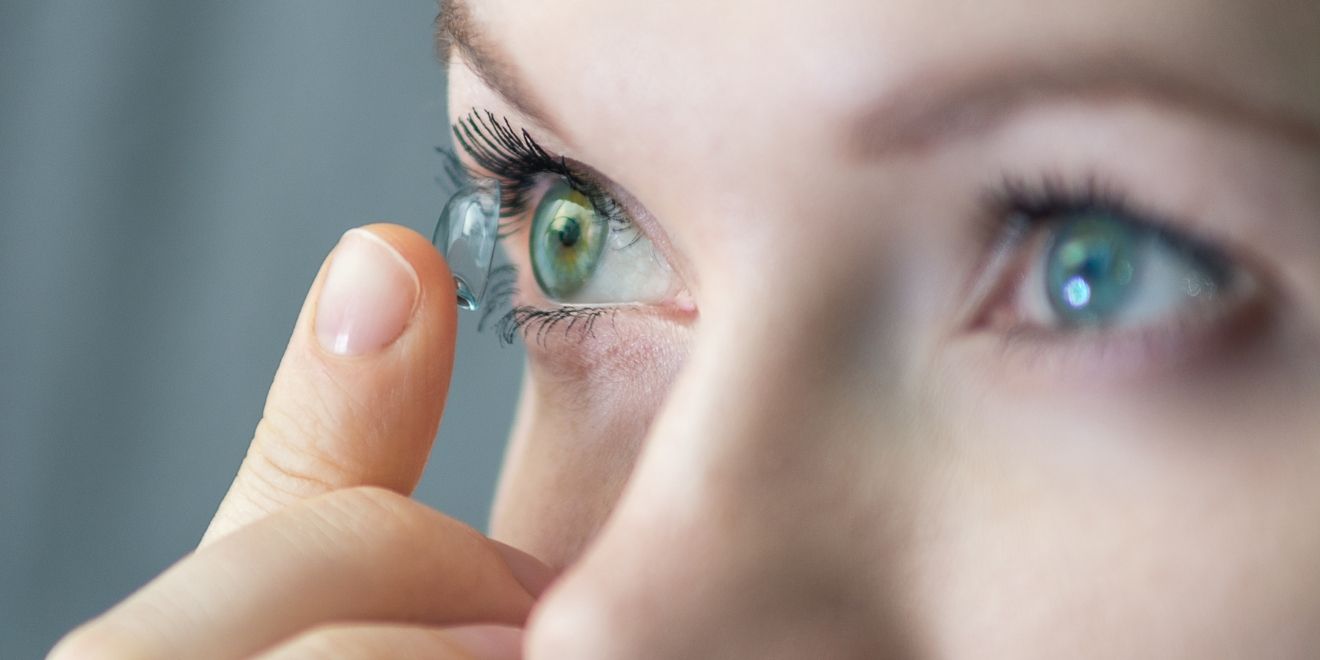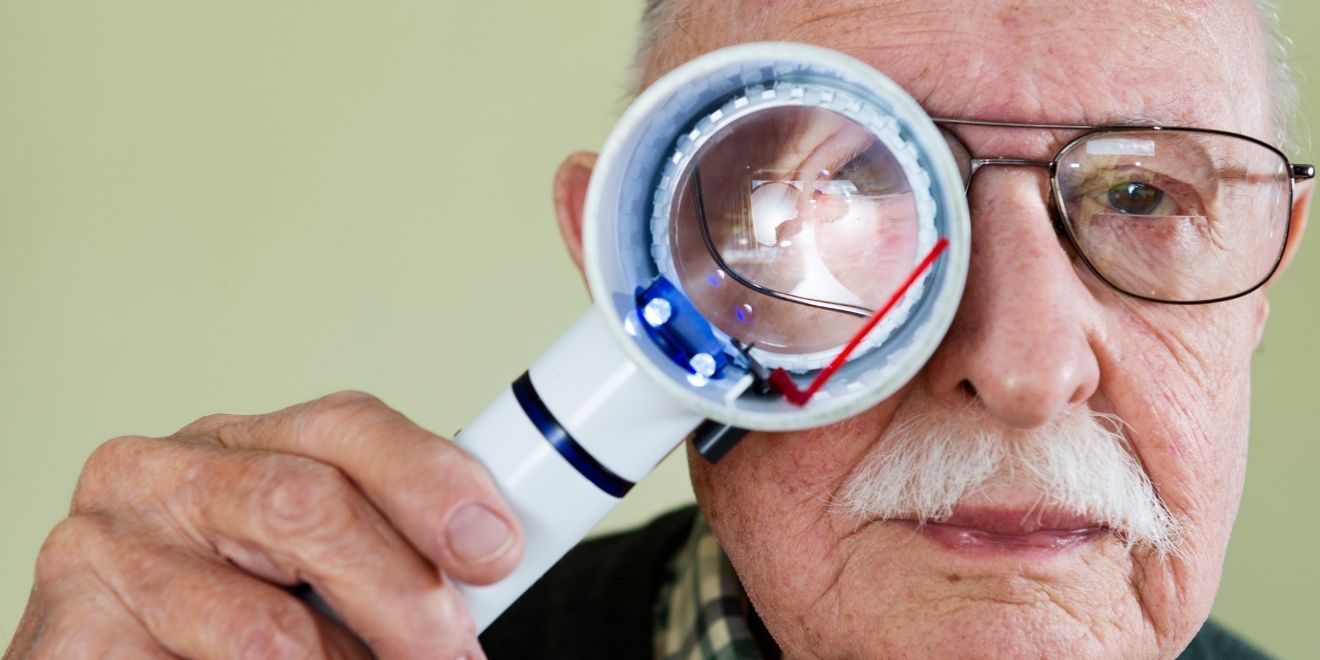13 Ways to Improve Your Vision

Eyesight affects many things, from moving and communicating to reading and perceiving art. For this reason, your vision needs to be maintained to the best of your ability.
While there are no permanent solutions to conditions like astigmatism, farsightedness, and nearsightedness, habits such as healthy eating and regular exercise are excellent for strong eyesight.
Read on for ways to improve your eyesight and keep preventable eye problems at bay.

Not many people fancy wearing contact lenses due to the minor irritation they cause on the eyeballs. This irritation can disrupt the user at work or school and significantly impact their productivity. Ortho-k lenses look the same as regular contact lenses but have a unique modus operandi that saves you the need to wear contacts or glasses during the day.
Ortho-k lenses do not complement your eyes with image magnification. Instead, they adjust the cornea for as long as you wear them, correcting your vision to see you through the next day or a couple of hours. Users need to wear their Ortho-k contacts overnight to be able to see aidless the following day.
Just like traditional physical exams, eye exams can go a long way toward detecting up-and-coming issues and stopping them in their tracks. Most eye conditions manifest slowly and do not exhibit any significant symptoms at the start.

This is why you need to have your eyes examined sporadically, even when your eyesight seems perfect.
Blue light is a constituent of the light spectrum that has unique effects on sleep cycles, hormone production, and alertness. Excessive exposure may also cause damage to light-sensitive tissues and cells such as those that make up the retina.

Although there is not enough research showing the exact amount of blue light from both artificial and natural sources that counts as too much, many eye experts believe continuous exposure to light from smartphones and computer screens is undoubtedly harmful as it can offset macular degeneration that causes permanent vision loss. Until there is enough information to infer from, it is best to limit the amount of time you spend in front of light-emitting digital devices as much as possible.
Over the past ten years, several studies have established a positive correlation between exercise and reduced risk in eye conditions, including glaucoma, cataracts, and macular degeneration.
Exercise may not directly affect your vision, but it improves other conditions such as diabetes and high blood pressure, which indeed affect eye health. Walking or running can significantly reduce the risk of age-induced cataracts, while any kind of mildly intensive exercise at least three times a week will decrease your chances of developing wet macular degeneration. Low-impact exercise has also been shown to reduce the eye pressure characteristic of glaucoma.
UV radiation from the sun can damage your eyes in various ways. It is believed to enhance cataract formation, which reduces vision as we age. While most people wear sunglasses on sunny days, experts recommend that you don yours any time you are outside. You should also consider switching to sunglasses that are 100% UV-resistant and do not have defects that could lead to eye strain while you wear them.
Not only is cigarette smoke bad for your lungs, airways, and voice, but it can also affect your vision. Smoking increases your risk of developing cataracts and makes your eyes scratchy, stinging, and red. It is also associated with more severe eye conditions such as glaucoma, diabetic retinopathy, and macular degeneration, which can cause blindness and temporary vision loss.

A 2001 study revealed that certain nutrients, including copper, zinc, beta carotene, vitamin C, and vitamin E can slow age-related vision decline by 25%. In 2013, the study was updated to test variants of the initial formula, this time including omega-3 fatty acids, lutein, and zeaxanthin, and the researchers found that various combinations worked better than others in bolstering eye health. Consider including the following ten foods in your diet for better vision:
Various jobs can increase your risk for eye injuries. Wearing protective equipment doesn't magically make the risk away, especially if you do the same risky thing daily. However, it reduces the risk significantly and will prevent negligible injuries from building up into serious vision-affecting injuries.

You should consider wearing face shields, protective goggles, and other occupation-specific PPEs if you handle chemicals, bodily fluids, lasers and other radiation emitters, and airborne particles of metal, wood, and other materials. Adhere to workplace regulations and ensure your gear is clean and in perfect working condition before wearing it. If you handle any of the mentioned materials outside the workplace, seek guidance from an expert before getting on with your projects.
People who have diabetes face a serious risk of eyesight decline, as the chronic condition continually weakens blood vessels in the retina and other parts of the eye. Over time, the capillaries become damaged and lose their ability to transport oxygen and other nutrients to the retina.
Managing your blood sugar, cholesterol, and blood pressure not only keeps diabetic emergencies at bay but also protects you from blurry vision and long-term eyesight weakening. Your doctor may recommend exercise and a diet change, among other measures, depending on the severity of your symptoms and other factors such as age and separate health issues. It would also help if you checked with an ophthalmologist for annual eye exams to ensure any developing eyesight defects are caught in their infancy.
Contact lenses come directly into contact with the surface of your eyes and can introduce all sorts of harmful particles and bacteria to the vital organs. You, therefore, need to ensure that they are clean before wearing them. The type and amount of care needed vary, depending on the lenses you wear. Disposable soft lenses require the least care.

On the other hand, traditional soft lenses call for extra steps, as they will be in use longer and are likelier to accumulate dirt. No matter the contacts you have, make sure to wash and dry your hands with a lint-free towel before handling them. Apply eye makeup and hairspray after putting on your lenses, and ensure your fingernails are short to avoid scratching your contacts. Some contacts use special products. Always use what your doctor recommends, whether it is an enzymatic cleaner, eye drops, or disinfecting solution.
Some eye conditions are hereditary. Although there are not many such conditions, it is best to know if you face any risk of developing them so you can start treatment early. Common eye problems that can be passed down generations include vision loss, age-related macular degeneration, retinal degeneration, optic atrophy, lazy eye or amblyopia, eye turn or strabismus, and glaucoma. If one of your parents or a close relative has any of them, consider going for a checkup.
Sleep benefits your eyes in a range of ways. For one, it sets up the process of eye cell regeneration, leading to healthy eye function and enhanced vision. You'll likely experience dry eye syndrome and eye spasms if you don't get enough sleep. Spasms are incredibly annoying if they happen regularly, and can decrease your vision significantly, taking a toll on your ability to drive, read, or use your computer.

Dry eye syndrome can also affect your quality of life by causing itchiness, eye fatigue, and blurred vision. When you get sufficient sleep, your body is able to enhance lubrication and repair worn tissues and nerves in and around your eyes. You will also reduce your risk for eye-related headaches and improve your vision at night.
Dehydration is one of the oldest enemies of good eyesight. Experts recommend drinking at least eight glasses of water every day to keep your organs, including the eyes, hydrated and functioning properly.
Dehydration is a natural process that can be accelerated by alcohol, caffeine, stress, diabetes, excessive screen use, diabetes, excess salt intake, and prescription medications. When your body is dehydrated, your eyes become less lubricated and struggle to expel bacteria, dust, and other particles.
The dryness will also make them itchy, scratchy, and red and might cause headaches, focusing problems, and burning sensations.

Being such vital organs, your eyes need a lot of care and attention. The above tips provide an excellent place to start if you're only kicking off your journey to improving your vision. If you have any existing eye health problems, consult your eye expert for a more comprehensive care regimen.
While there are no permanent solutions to conditions like astigmatism, farsightedness, and nearsightedness, habits such as healthy eating and regular exercise are excellent for strong eyesight.
Read on for ways to improve your eyesight and keep preventable eye problems at bay.

1. Wear Ortho-K lenses
Not many people fancy wearing contact lenses due to the minor irritation they cause on the eyeballs. This irritation can disrupt the user at work or school and significantly impact their productivity. Ortho-k lenses look the same as regular contact lenses but have a unique modus operandi that saves you the need to wear contacts or glasses during the day.
Ortho-k lenses do not complement your eyes with image magnification. Instead, they adjust the cornea for as long as you wear them, correcting your vision to see you through the next day or a couple of hours. Users need to wear their Ortho-k contacts overnight to be able to see aidless the following day.
2. Get regular eye exams
Just like traditional physical exams, eye exams can go a long way toward detecting up-and-coming issues and stopping them in their tracks. Most eye conditions manifest slowly and do not exhibit any significant symptoms at the start.

This is why you need to have your eyes examined sporadically, even when your eyesight seems perfect.
3. Avoid blue light exposure
Blue light is a constituent of the light spectrum that has unique effects on sleep cycles, hormone production, and alertness. Excessive exposure may also cause damage to light-sensitive tissues and cells such as those that make up the retina.

Although there is not enough research showing the exact amount of blue light from both artificial and natural sources that counts as too much, many eye experts believe continuous exposure to light from smartphones and computer screens is undoubtedly harmful as it can offset macular degeneration that causes permanent vision loss. Until there is enough information to infer from, it is best to limit the amount of time you spend in front of light-emitting digital devices as much as possible.
4. Exercise
Over the past ten years, several studies have established a positive correlation between exercise and reduced risk in eye conditions, including glaucoma, cataracts, and macular degeneration.
Exercise may not directly affect your vision, but it improves other conditions such as diabetes and high blood pressure, which indeed affect eye health. Walking or running can significantly reduce the risk of age-induced cataracts, while any kind of mildly intensive exercise at least three times a week will decrease your chances of developing wet macular degeneration. Low-impact exercise has also been shown to reduce the eye pressure characteristic of glaucoma.
5. Use UV-resistance eye protection
UV radiation from the sun can damage your eyes in various ways. It is believed to enhance cataract formation, which reduces vision as we age. While most people wear sunglasses on sunny days, experts recommend that you don yours any time you are outside. You should also consider switching to sunglasses that are 100% UV-resistant and do not have defects that could lead to eye strain while you wear them.
6. Quit cigarettes
Not only is cigarette smoke bad for your lungs, airways, and voice, but it can also affect your vision. Smoking increases your risk of developing cataracts and makes your eyes scratchy, stinging, and red. It is also associated with more severe eye conditions such as glaucoma, diabetic retinopathy, and macular degeneration, which can cause blindness and temporary vision loss.

7. Eat healthily
A 2001 study revealed that certain nutrients, including copper, zinc, beta carotene, vitamin C, and vitamin E can slow age-related vision decline by 25%. In 2013, the study was updated to test variants of the initial formula, this time including omega-3 fatty acids, lutein, and zeaxanthin, and the researchers found that various combinations worked better than others in bolstering eye health. Consider including the following ten foods in your diet for better vision:
- Seeds, e.g., chia seeds, hemp seeds, and flax seeds
- Citrus fruits, e.g., grapefruits, oranges, and lemons
- Leafy green vegetables, e.g., collards, kale, and spinach
- Eggs
- Beef
- Sweet potatoes
- Carrots
- Nuts and legumes, e.g., walnuts, lentils, peanuts, cashews, and Brazil nuts
- Fish, e.g., herring, anchovies, sardines, mackerel, trout, salmon, and tuna
8. Wear protective eyewear
Various jobs can increase your risk for eye injuries. Wearing protective equipment doesn't magically make the risk away, especially if you do the same risky thing daily. However, it reduces the risk significantly and will prevent negligible injuries from building up into serious vision-affecting injuries.

You should consider wearing face shields, protective goggles, and other occupation-specific PPEs if you handle chemicals, bodily fluids, lasers and other radiation emitters, and airborne particles of metal, wood, and other materials. Adhere to workplace regulations and ensure your gear is clean and in perfect working condition before wearing it. If you handle any of the mentioned materials outside the workplace, seek guidance from an expert before getting on with your projects.
9. Manage your diabetes
People who have diabetes face a serious risk of eyesight decline, as the chronic condition continually weakens blood vessels in the retina and other parts of the eye. Over time, the capillaries become damaged and lose their ability to transport oxygen and other nutrients to the retina.
Managing your blood sugar, cholesterol, and blood pressure not only keeps diabetic emergencies at bay but also protects you from blurry vision and long-term eyesight weakening. Your doctor may recommend exercise and a diet change, among other measures, depending on the severity of your symptoms and other factors such as age and separate health issues. It would also help if you checked with an ophthalmologist for annual eye exams to ensure any developing eyesight defects are caught in their infancy.
10. Clean your contact lenses
Contact lenses come directly into contact with the surface of your eyes and can introduce all sorts of harmful particles and bacteria to the vital organs. You, therefore, need to ensure that they are clean before wearing them. The type and amount of care needed vary, depending on the lenses you wear. Disposable soft lenses require the least care.

On the other hand, traditional soft lenses call for extra steps, as they will be in use longer and are likelier to accumulate dirt. No matter the contacts you have, make sure to wash and dry your hands with a lint-free towel before handling them. Apply eye makeup and hairspray after putting on your lenses, and ensure your fingernails are short to avoid scratching your contacts. Some contacts use special products. Always use what your doctor recommends, whether it is an enzymatic cleaner, eye drops, or disinfecting solution.
11. Learn your risks
Some eye conditions are hereditary. Although there are not many such conditions, it is best to know if you face any risk of developing them so you can start treatment early. Common eye problems that can be passed down generations include vision loss, age-related macular degeneration, retinal degeneration, optic atrophy, lazy eye or amblyopia, eye turn or strabismus, and glaucoma. If one of your parents or a close relative has any of them, consider going for a checkup.
12. Get enough rest and sleep
Sleep benefits your eyes in a range of ways. For one, it sets up the process of eye cell regeneration, leading to healthy eye function and enhanced vision. You'll likely experience dry eye syndrome and eye spasms if you don't get enough sleep. Spasms are incredibly annoying if they happen regularly, and can decrease your vision significantly, taking a toll on your ability to drive, read, or use your computer.

Dry eye syndrome can also affect your quality of life by causing itchiness, eye fatigue, and blurred vision. When you get sufficient sleep, your body is able to enhance lubrication and repair worn tissues and nerves in and around your eyes. You will also reduce your risk for eye-related headaches and improve your vision at night.
13. Drink plenty of water
Dehydration is one of the oldest enemies of good eyesight. Experts recommend drinking at least eight glasses of water every day to keep your organs, including the eyes, hydrated and functioning properly.
Dehydration is a natural process that can be accelerated by alcohol, caffeine, stress, diabetes, excessive screen use, diabetes, excess salt intake, and prescription medications. When your body is dehydrated, your eyes become less lubricated and struggle to expel bacteria, dust, and other particles.
The dryness will also make them itchy, scratchy, and red and might cause headaches, focusing problems, and burning sensations.

Endnote
Being such vital organs, your eyes need a lot of care and attention. The above tips provide an excellent place to start if you're only kicking off your journey to improving your vision. If you have any existing eye health problems, consult your eye expert for a more comprehensive care regimen.




































































































